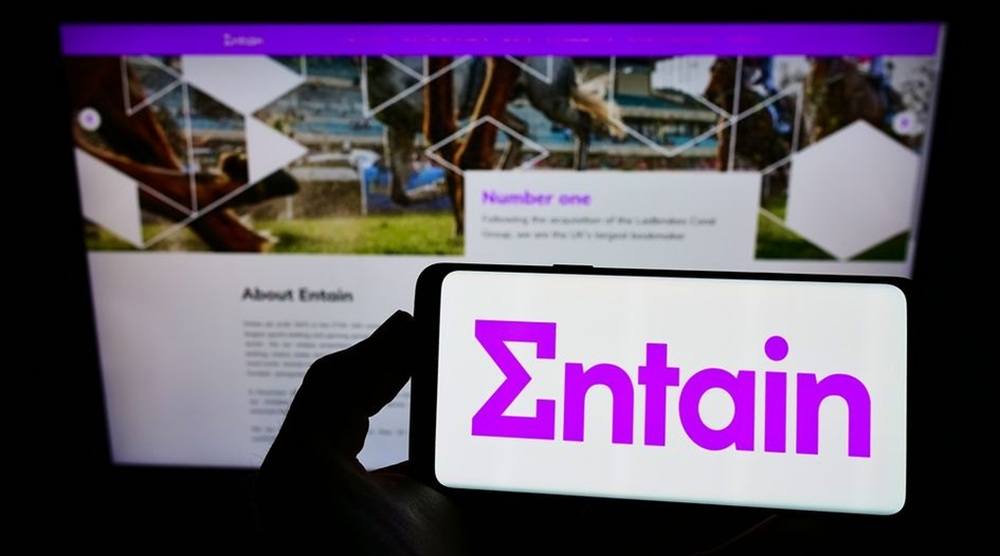How an addicted gambler gamed the Albanese government’s self-exclusion scheme

- by Admin
- September 23, 2024
The credibility of the Albanese government’s much-vaunted wagering self-exclusion scheme BetStop has been called into question after loopholes in the system allowed a Sydney man to lose nearly $70,000 despite signing up to a lifetime ban.
The Australian Communications and Media Authority (ACMA) is now investigating some betting agencies over allegations of non-compliance with BetStop.
When the Albanese government launched BetStop in August last year, it promised to deliver a system that would protect gamblers who wanted to quit.
“With a single touch an individual will be able to self-exclude themselves from all forms of online wagering,” the Minister for Communications Michelle Rowland said when launching the register.
“They’ll not be able to open an account, place a bet and it will be prohibited to market to them directly,” she said.
But addicted gambler Ravi, whose name has been changed to protect his identity, has told ABC Investigations he found it easy to keep punting after registering.
“Since February 2024 I was able to open accounts and make bets with eight different betting companies and I’ve lost nearly $70,000 in the last six months,” he said.
Loopholes in the BetStop system are so easy to navigate that Ravi opened a new betting account in a matter of minutes while being interviewed by the ABC, despite being on the self-exclusion register.
“I could deposit thousands of dollars today [in this account] and no-one would be the wiser,” he said after opening the account.
BetStop has been mentioned frequently by the prime minister and government ministers in recent months as an example of how it has taken action to minimise harm from online betting.
The government has been under pressure for failing to officially respond to a parliamentary inquiry chaired by the late Labor MP Peta Murphy, which 15 months ago called for a full ban on gambling advertising and made 30 other recommendations including establishing a national regulator.
The late Labor MP Peta Murphy chaired a parliamentary inquiry into online gambling which reported in June last year. (ABC News: Ross Nerdal, file photo )
Responding to criticism last month, Prime Minister Anthony Albanese said his government had “done more in our first two years on gambling than any previous government ever”.
In parliament, he cited the introduction of BetStop as one of the key elements of the “most significant online wagering harm-reduction reform initiatives of the past decade”.
But Ravi’s story, and confirmation that the Australian Communications and Media Authority (ACMA) is now investigating certain betting agencies over allegations of non-compliance with BetStop, raise serious questions about the effectiveness of the government’s self-exclusion register.
Ravi’s story
Ravi says it was gambling advertising on the television that got him hooked on sports betting.
In 2017, he was about to watch the Australian Open tennis final between Roger Federer and Rafael Nadal when a promotion flashed on his screen offering the latest odds on the result.
As a recent migrant from India, he was not used to being exposed to sports-betting advertisements.
“Federer was my favourite and I thought, ‘Why don’t I put a couple of hundred bucks on and see how I go?'” he said.
“End of the day, I had about $500 in my account, and that got me into it. It was the easiest money I ever made.”
Ravi’s gambling got increasingly out of control, and he borrowed money from friends to fund his habit. At the beginning of this year, he realised he had to stop.
“I owed more than $100,000 to people and the reality hit me,” he said.
“I was going through my phone contacts to call somebody, and I couldn’t find anyone who I haven’t reached out to for money for gambling.”
Ravi says his sports betting addiction started after he saw gambling advertising on TV during the Australian Open tennis. (ABC News: Sissy Reyes)
The issue came to a head when a friend who had loaned him $24,000 called in his debt.
“He told me if I don’t come up with the money in the next hour, he’s going to go outside my home, tell everything to my family and stay outside my home and make my neighbours know as well,” he said.
Full of humiliation and shame, Ravi was concerned he might harm himself.
After discussing the situation with his wife, he agreed to take action.
“We decided, irrespective of how big the problem is, it was best to self-exclude, and I chose to reach out to BetStop.”
But the BetStop system did not protect Ravi in the way it was meant to. A week later, he said, he was able to log in to one of his old betting accounts with TopSport.
“I was just trying to see if all my accounts were closed, and I realised one of the companies I had an account with was still open,” he said.
“It allowed me to log into the system.
“I tried putting a few hundred dollars in and it took the money.
“I was able to phone them, place a bet on the phone with them for a live game.”
Ravi said a week later he alerted TopSport that he was on the self-exclusion register and his account was closed, but soon his addiction got the better of him and he tried to gamble once more by logging in to another of his old accounts with a betting agency called Colossalbet.
He said, once again, the system failed.
“It allowed me to still put money in and take deposits and place bets,” he said.
“After that, I couldn’t pull myself out of it until late August.”
Ravi said he lost $28,750 with Colossalbet while he was on the self-exclusion register. On September 4 he wrote to the betting agency asking for a refund.
He says he has yet to hear back about the money.
When it was introduced, the government stated: “BetStop has been subject to extensive testing and trialling to ensure it provides a secure and trusted environment for users.”
Lauren Levin from Financial Counselling Australia describes Ravi’s case as a “massive failure” and says it is up to the government and ACMA to close these loopholes immediately.
“The buck stops with both the federal government and with ACMA,” she said.
“The register was years in the making and these weaknesses have to be fixed, and have to be fixed quickly.”
Lauren Levin says the federal government and the ACMA should act swiftly to strengthen BetStop. (ABC News: Jeremy Story Carter, file photo)
Ms Levin believes there are betting agencies doing the right thing but says it is no coincidence that the smaller betting agencies have allowed Ravi to gamble after self-excluding.
“Australia allows every man and his dog to open up a gambling company,” she said.
“The companies that Ravi bet with were small companies, and over the past few years there’s been a proliferation of small companies, and that’s largely because it’s become very easy to set up a gambling company with ‘white-label off-the-shelf’ gambling software.”
The CEO of TopSport Tristan Merlehan said his company had more than 130,000 betting accounts and this was the only time a customer had complained in relation to BetStop.
“Without commenting on the individual case due to privacy requirements, I will say that, away from this one issue, we have not had any other issues relating to BetStop, and we feel it is providing a very positive service to customers who wish to remove their ability to wager with all wagering service providers over a period.”
Colossalbet declined to comment.
Ravi opened another six betting accounts
After restarting his gambling, Ravi said he tried to open more betting accounts.
“I tried to open an account with my name. It didn’t allow me to open because my name was matching to a BetStop account,” he said.
Ravi said he soon worked out that if he dropped one letter from his first name and used a different email address and phone number from those registered with BetStop, he could register with certain agencies.
He used his last name, date of birth and the same bank accounts he had used to gamble with other betting agencies.
Under BetStop’s terms of use, people registering are meant to provide updated contact information – something that Ravi did not do at all times.
However, he should not have been able to open an account by dropping one letter from his first name.
As part of the launch of BetStop, the government introduced mandatory customer pre-verification, “requiring wagering service providers to verify a customer’s identity when they register for a new account and before they place a bet”.
BetStop was launched in August last year. (Supplied: Australian Government)
Ravi said about five or six agencies did verify his identification, and the rejection was prompt.
“Two minutes later, I get an email saying your ID validation failed, you’ve been self-excluded, we are closing your account.”
He said the six betting agencies that did allow him to open new accounts after self-excluding had not refunded his money.
Ms Levin said the betting agencies should pay the money back.
“These bets were unlawful, so gambling companies cannot keep money for bets that weren’t supposed to be taken,” she said.
“There’s no way the gambling companies should be allowed to profit from doing the wrong thing.”
Ms Levin is appalled that Ravi was able to open multiple accounts under the new BetStop system.
“The fact that he’s been able to open so many accounts really shows that there’s a systems failure and there’s an operator failure,” she said.
“BetStop was designed knowing that the target group were really vulnerable people who had gambling addictions, and it demanded high standards because the cohort were putting their hands up and saying, ‘I need help. Stop me from gambling.'”
Independent MP Kate Chaney sat on the parliamentary inquiry that looked into online gambling harm.
Indepenedent MP Kate Chaney says more needs to be done to protect people trying to overcome gambling addiction. (ABC News: Matt Roberts, file photo)
She says if the government had adopted the committee’s recommendations Ravi would not have been able to gamble while self-excluded.
“One of the recommendations in the report, recommendation 13, said that if someone self-registers with BetStop, then the banks should stop their card from being used for gambling transactions,” she said.
“The way we regulate gambling is like Swiss cheese.
“There are just so many holes in it, and we need to take a much more integrated approach to regulating it nationally and protecting people who are trying hard to kick their gambling addiction.”
Ravi wrote to the communications minister last Friday seeking a meeting over what he called “deficiencies and holes in the current rules and regulations”.
He has not heard back.
He has also made a formal complaint to the ACMA.
When launching BetStop, Communications Minister Michelle Rowland said it would allow people to exclude themselves from all forms of online betting with a single touch. (ABC News: Adam Kennedy, file photo)
A spokesperson for Minister for Communications Michelle Rowland said the government would “shortly commence a statutory review of BetStop to consider whether the regulatory framework is fit for purpose”.
“The review will involve a public consultation process, with a report to be provided to the Minister for Communications within 18 months, which will be tabled in both Houses of Parliament,” the spokesperson said in a statement.
“The government will consider any recommendations on the future of the BetStop legislative framework following the completion of the review.”
In a statement, a spokesperson for the ACMA said it expected “wagering providers to have diligent and robust customer verification measures to ensure that they do not provide services to excluded persons”.
“We are aware of situations where people have been able to open accounts and place bets after they have registered for self-exclusion.
“We are currently investigating instances of potential wagering provider non-compliance and will be able to provide more details once these investigations are finalised.”
When asked whether those who self-excluded and subsequently lost money from betting agencies could get their money back, the spokesperson said: “While we can take enforcement action against providers that have breached the law, we do not have express powers to award compensation or require providers to issue refunds.”
Ms Levin said the ACMA needed to take action if fault was found with the betting agencies.
“This is not out-of-date legislation,” she said.
“It was new purpose-built legislation.
“And so ACMA has the power to send a message to the whole industry, that compliance is not optional.”
Ravi acknowledges that he tried to game the BetStop system and says that responsibility for losing close to $70,000 while on the self-exclusion register is shared between himself, the betting agencies and the government.
“They didn’t put a gun to my head and say you have to bet,” he said.
“I made the choice to bet.
“I tried to find the loopholes, but I did that because I had issues and I thought the system would find a way to stop it from happening.”
He is now attending Gambler’s Anonymous and hopes he can overcome his addiction.
“It has affected every aspect of my life, my personal life, my work,” he said.
“I’ve hurt my family, my wife, my kid, even though he might not realise it now.
“I don’t speak to anyone from my previous life. I don’t have anyone who is calling me to check if I’m OK.
“I’m trying to struggle to find money, to sort out my gambling debt and to hopefully come out of it with the least scars and wounds possible.”
The Latest News
-
December 23, 2024DAZN ADVANCES GLOBAL EXPANSION WITH ACQUISITION OF FOXTEL, A LEADING AUSTRALIAN SPORTS AND ENTERTAINMENT MEDIA GROUP
-
December 23, 2024Big-hitting Brit emerges from the shadows after breakout year
-
December 23, 2024‘White as a ghost’: When Lee’s lightning spell felled an Angel and sent Waugh running
-
December 22, 2024Billionaire-backed sports streamer buys Foxtel
-
December 22, 2024Footy world rallies around Lions premiership winner and family amid awful news





